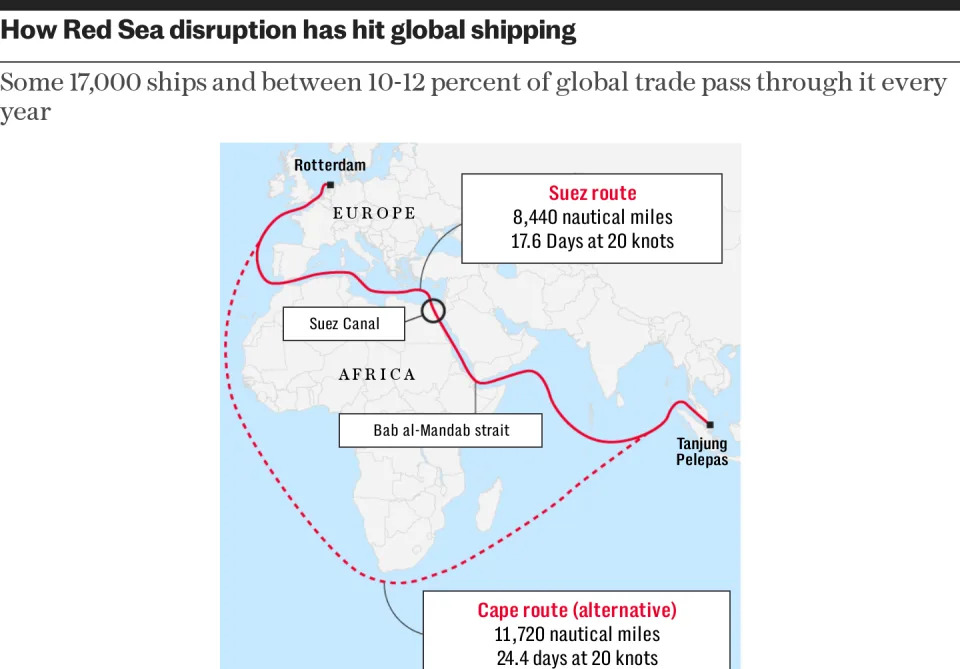
Trains at Moscows Leningradsky and Yaroslavsky railway stations
The Telegraph: The Red Sea crisis is driving a surge in the transport of goods on Russian railways and boosting profits for Vladimir Putin, analysis shows.
Freight companies operating between China and Europe are increasingly turning to rail lines that run through Russia as Houthi rebel attacks on ships travelling through the Suez Canal trigger delays and higher costs. The volume of goods transported from China to Europe via the Eurasian Rail Alliance (Era) – a Russian freight company which uses Russian rail lines – has more than doubled since the Red Sea crisis began at the end of last year.
Simon Johnson, an MIT professor and former IMF chief economist, said: “This is definitely a source of revenue for the Kremlin. It looks like another case of the EU declining to incur costs and therefore only encouraging Russian aggression.”
Russia’s national rail operator, RZD, which is owned by the Kremlin, has a near-monopoly on the country’s rail lines.
In the first six months of this year, Era transported 163,000 twenty-foot equivalent units (TEUs) of goods by rail between China and Europe – a 121pc jump compared to the same period in 2023, according to The Telegraph’s analysis of the company’s data.
Transits along this route had plunged by 61pc since Russia launched its full-scale invasion of Ukraine. But the volume of goods has nearly bounced back to its pre-war peak. The volume of goods transported between China and Poland, Era’s most-used route, surged to a record high of 134,000 TEUs in the first six months of the year. This was 38pc more than its pre-war peak in 2021.
From Poland, these goods are transported onwards to other destinations across Europe.
The volume of goods being transported by rail is still tiny in proportion to maritime shipping, but the shift highlights a loophole in the Western sanctions regime.
There are no sanctions on goods travelling by rail through Russia, as long as the goods remain on continuous travel.
Many shipping companies, such as Maersk and DSV, announced they would stop using these routes after Russia invaded Ukraine.

But some companies, such as Denmark-based Blue Water Shipping, are now reversing this policy because of high demand from firms looking for faster shipping routes from Asia.
Blue Water restarted transits through Russia in February, which the company’s spokesman said was because “the problems in the Red Sea have made it necessary for companies to look at several alternative routes”.
The Red Sea crisis began shortly after last October’s Hamas attacks on Israel, when the Iran-backed Houthi group in Yemen began launching aerial attacks on ships travelling through the strait connecting the sea to the Indian Ocean. Last week, militants hit a Greek oil tanker, leading it to catch on fire.












Leave a review